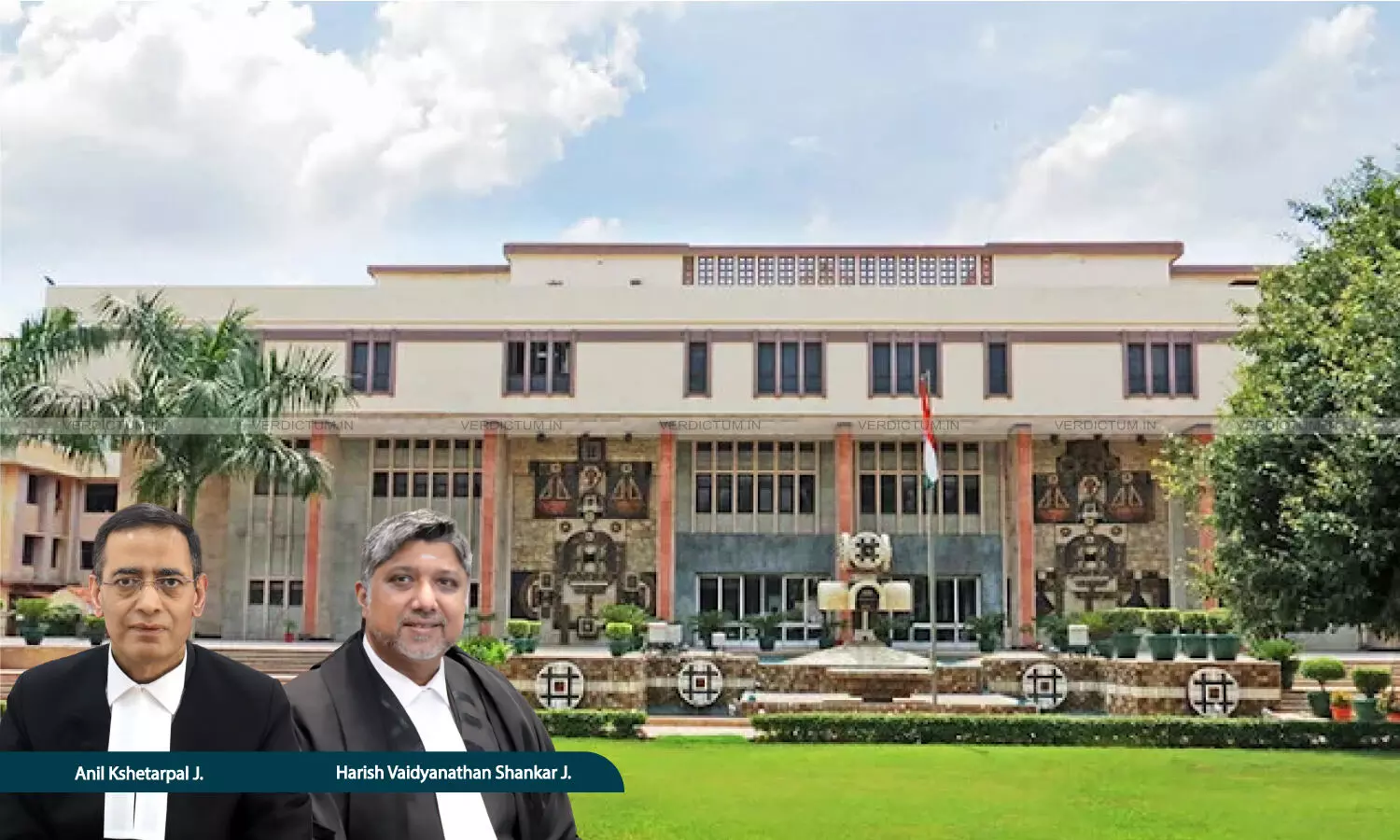
Justice Anil Kshetarpal and Justice Harish Vaidyanathan Shankar, Delhi High Court
Delhi High Court: Right To Reside Under DV Act Is Shield Against Unlawful Dispossession, Not Sword To Create Proprietary Rights
 |
|An appeal was filed by the daughter-in-law against the order of the Trial Court granting the possession of property in favour of the mother-in-law.
The Delhi High Court observed that the protection under Section 17(1) of the Act, 2005 acts as a shield against unlawful dispossession of a woman, not as a sword to create proprietary rights, which would go beyond the intention, scope and ambit of the Act, 2005.
An appeal was filed by the daughter-in-law against the order of the Trial Court granting the possession of property in favour of the mother-in-law.
The Bench of Justice Anil Kshetarpal and Justice Harish Vaidyanathan observed, “To put it in other words, the intention behind this provision is purely to grant the right of residence as a protective measure, so as to exclude the possibility of a woman being removed from her matrimonial home at the whims and fancies of her in-laws. Accordingly, the protection under Section 17(1) of the Act, 2005 acts as a shield against unlawful dispossession of a woman, not as a sword to create proprietary rights, which would go beyond the intention, scope and ambit of the Act, 2005.”
Advocate Priyanka Sinha represented the Appellant, Advocate Manoj Kumar Duggal represented the Respondent.
Case Brief
An appeal was filed by the Appellant, the daughter-in-law of the Respondent, against the order of the Trial Court wherein the possession of the property was granted to her Mother-in-Law.
It was the case of the Appellant that she was entitled to a right of residence in the property, by virtue of her being a legal heir, to the deceased father-in-law. It was also contended that the Appellant and her husband were not impleaded as parties to the probate proceeding instituted by the mother-in-law on the property.
While the case of the Mother-in-Law contended that the daughter-in-law was permitted by her to stay in the suit property, however, this permission to reside in the suit property was revoked later.
Further, following two submissions were made by the daughter-in-law: the suit property is a shared household, and therefore, the daughter-in-law has a right of residence, and before the Trial Court she led evidence to substantiate its contention with respect to domestic violence; however, the Trial Court overlooked the same.
Court’s Observation
The High Court noted that the primary issue was whether the Appellant was entitled to continue residing in the suit property within the meaning of Section 17 of the Protection of Women from Domestic Violence Act, 2005.
The Bench referred to Section 17 of the Domestic Violence Act and opined that Section 17 culls out a substantive right of residence in favour of a woman to seek shelter within the shared household, whether or not any beneficiary or proprietary rights with respect to such property has been derived from domestic relationship.
“However, such right of residence contemplated under Section 17(1) of the Act, 2005 is not an absolute right conferred upon a woman, rather is limited to the extent of circumstances expressed under Section 17(2) of the Act, 2005 thereby creating a restriction in the interest and/or right emanating from Section 17(1) of the Act, 2005”, the Bench added.
Thus, the intention behind this provision is purely to grant the right of residence as a protective measure, so as to exclude the possibility of a woman being removed from her matrimonial home at the whims and fancies of her in-laws. “Accordingly, the protection under Section 17(1) of the Act, 2005 acts as a shield against unlawful dispossession of a woman, not as a sword to create proprietary rights, which would go beyond the intention, scope and ambit of the Act, 2005”, the High Court held.
Subsequently, the High Court noted that the daughter-in-law has not been residing at the suit property since 2012. As a result, the daughter-in-law out of her own accord ceased to reside at her matrimonial home, i.e., the suit property, despite her right of residence being recognized.
“Hence, the Appellant is not entitled to claim right of residence for two reasons. Firstly, it is upon her own volition that she stopped residing at the suit property as elaborated in the preceding paragraph. Secondly, the right of residence provided under Section 17(1) of the Act, 2005 stood curtailed as soon as the Respondent, by way of a Civil Suit, followed by the Trial Courts Order upon careful examination of evidence produced by the Parties thereby, was considered to be the rightful owner of the suit property”, the Court held.
Thus, the High Court disposed of the Appeal.
Cause Title: ABC V. XYZ